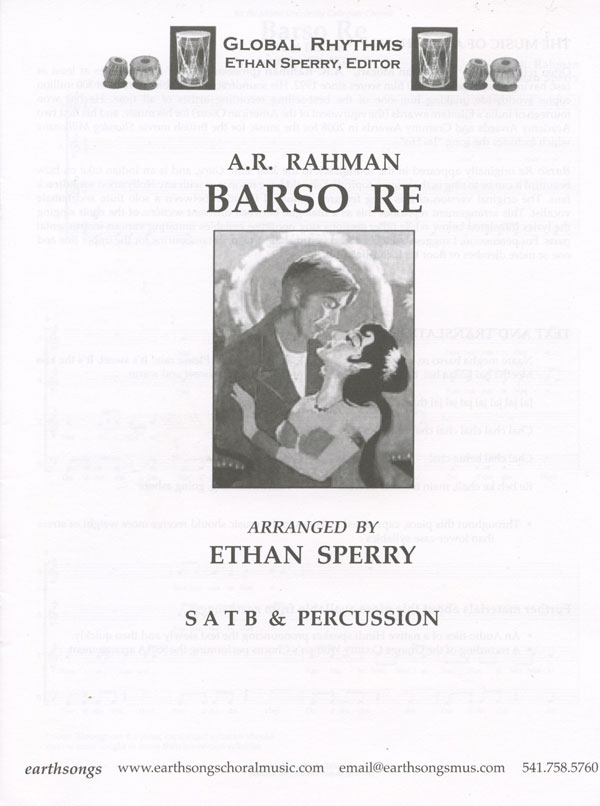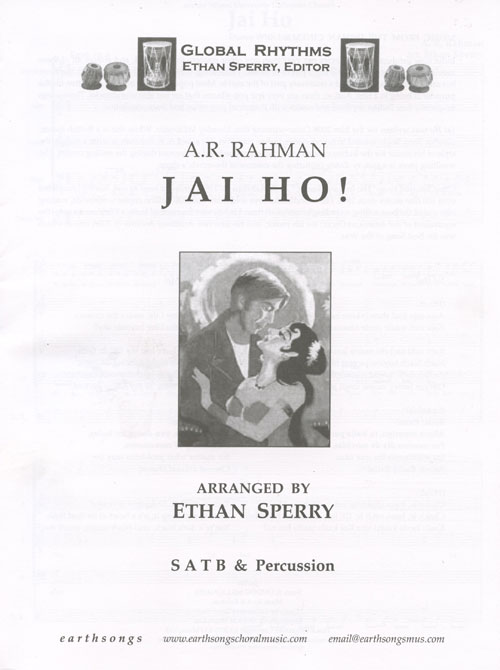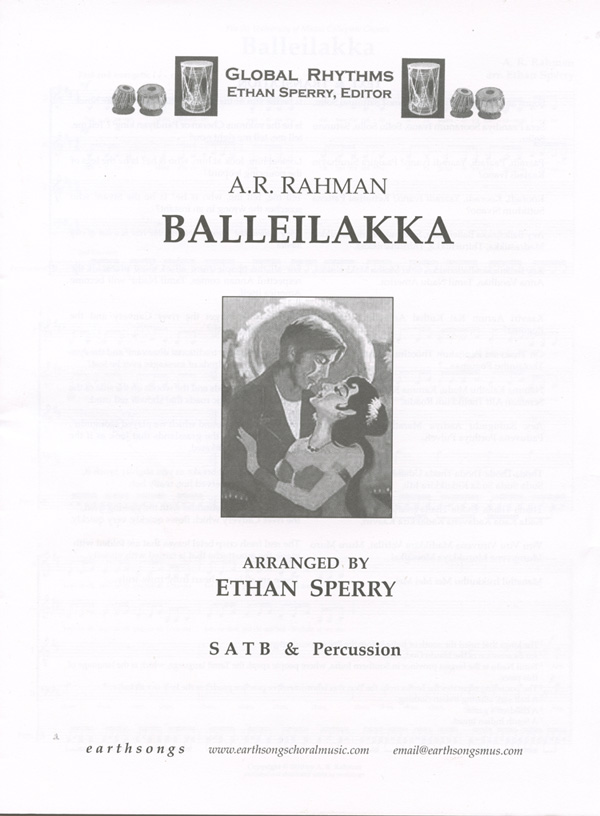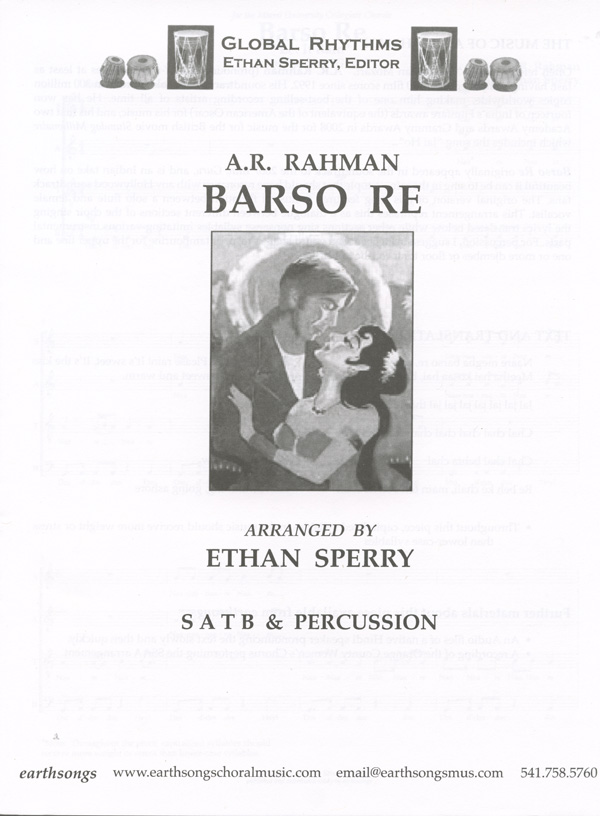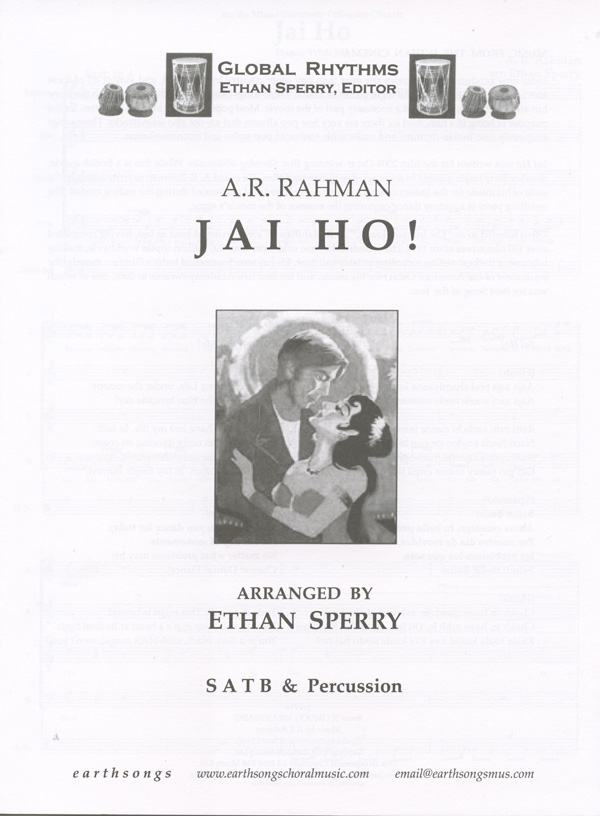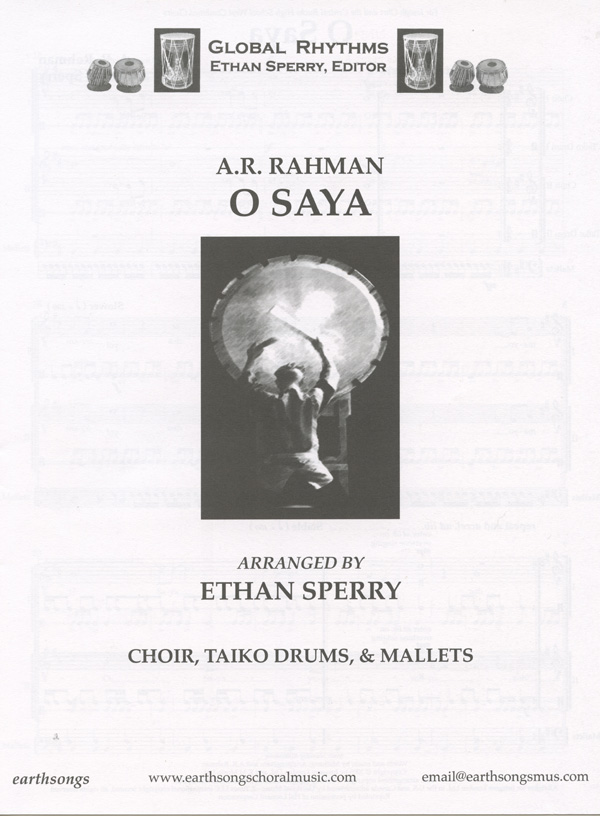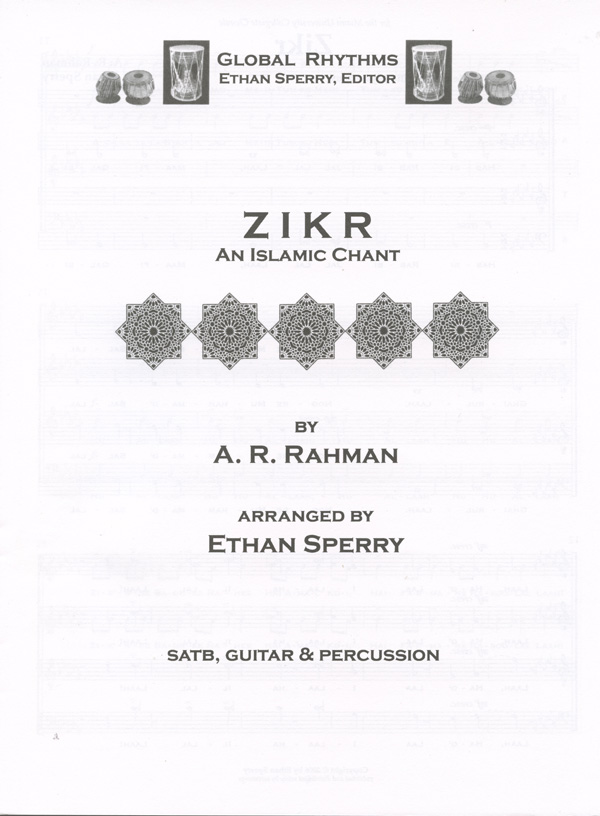In Celebration of the Human Voice - The Essential Musical Instrument
Home | Doo Wop | Barbershop | World | Contemporary | Christian | Vocal Jazz | Choral | Christmas | Instructional | Arrangements
Classical | Opera | Musicals | Personality | Young Singers | Disney | Videos | Songs | The Artists

A.R. Rahman
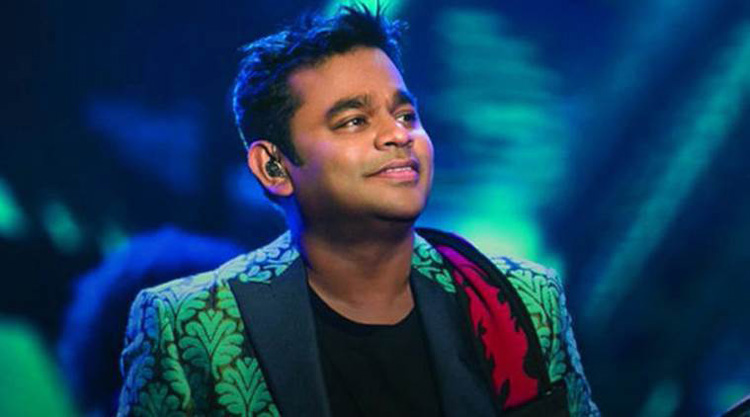
Allahrakka Rahman; known professionally as A. R. Rahman, is an Indian music director, composer, musician, singer and music producer. A. R. Rahman's works are noted for integrating Indian classical music with electronic music, world music and traditional orchestral arrangements. Among his awards are six National Film Awards, two Academy Awards, two Grammy Awards, a BAFTA Award, a Golden Globe Award, fifteen Filmfare Awards and seventeen Filmfare Awards South. He has been awarded the Padma Bhushan, the third highest civilian award, in 2010 by the Government of India. In 2009, Rahman was included on the Time 100 list of the world's most influential people. The UK-based world-music magazine Songlines named him one of "Tomorrow's World Music Icons" in August 2011. South Indian fans of Rahman refer him with the nickname of "The Mozart of Madras", and "Isai Puyal" (English: the Musical Storm). |
Songbooks, Arrangements and/or Media
Displaying 1-2 of 2 items.
A.R. Rahman : Barso Re Barso Re, written by A. R. Rahman and arranged for choir by Ethan Sperry, appeared in the soundtrack of the 2007 film Guru. It is an Indian take on how beautiful it can be to sing in the rain. For percussion, use a beaded gourd shaker, rasp, or tambourine for the upper line and one or more djembes or floor toms for the lower line. A.R. Rahman : Music From the Indian Cinema Jai Ho was written for the 2008 Oscar winning film Slumdog Millionaire. While this is a British movie, director Tony Boyle wanted to acknowledge Indian tradition. He asked A.R. Rahman to write a song in the style of his music for the Indian cinema to be choreographed and performed during the ending credits. The resulting piece is a victory dance capturing the essence of the movie's story. Balleilakka is a song from the Tamil film Sivaji, which means "The Boss." The text of this piece is a tongue-twister lamenting how traditional Indian culture is being subsumed and listing the speaker's memories of his homeland in increasingly faster syllabic patterns. O Saya was written for the Oscar winning film Slumdog Millionaire. The song appears at the beginning as we are introduced to just how horrible living conditions are int he slums of India. The lyrics have no meaning, nor does the title. They are just nonsense syllables that form a wail. The melodic patterns are based loosely on the patterns one might hear in the slums as the Muslim call to worship blasts from the minarets, but they are more a call to action than a call to prayer. When people sing this piece, hopefully they will consider taking some action against poverty themselves. Barso Re, written by A. R. Rahman and arranged for choir by Ethan Sperry, appeared in the soundtrack of the 2007 film Guru. It is an Indian take on how beautiful it can be to sing in the rain. For percussion, use a beaded gourd shaker, rasp, or tambourine for the upper line and one or more djembes or floor toms for the lower line. Songlist: Jai Ho!, Balleilakka, O Saya, Zikr, Barso Re |
Displaying 1-6 of 6 items.
Balleilakka is a song from the Tamil film Sivaji, which means "The Boss." Tamil is the language of the Southern Indian province of Tamil Nadu whose capital, Chennai (Madras under British rule) is India's third-largest city and A.R. Rahman's home. An old language dating back to before 300 B.C., Tamil is the native language of Singapore and Sri Lanka as well as tens of millions of Indians (there are almost 2,000 newspapers in print in Tamil today of which about 350 are daily papers). The text of this piece is a tongue-twister lamenting how traditional Indian culture is being subsumed and listing the speaker's memories of his homeland in increasingly faster syllabic patterns.
Arranger: Ethan Sperry | Country: India | Musical: Sivaji
Barso Re, written by A. R. Rahman and arranged for choir by Ethan Sperry, appeared in the soundtrack of the 2007 film Guru. It is an Indian take on how beautiful it can be to sing in the rain. For percussion, use a beaded gourd shaker, rasp, or tambourine for the upper line and one or more djembes or floor toms for the lower line.
Arranger: Ethan Sperry | Country: India | Musical: Guru
Jai Ho was written for the 2008 Oscar winning film Slumdog Millionaire. While this is a British movie, director Tony Boyle wanted to acknowledge Indian tradition. He asked A.R. Rahman to write a song in the style of his music for the Indian cinema to be choreographed and performed during the ending credits. The resulting piece is a victory dance capturing the essence of the movie's story.
Arranger: Ethan Sperry | Country: India | Musical: Slumdog Millionaire
O Saya was written for the Oscar winning film Slumdog Millionaire. The song appears at the beginning as we are introduced to just how horrible living conditions are in the slums of India. The lyrics have no meaning, nor does the title. They are just nonsense syllables that form a wail. The melodic patterns are based loosely on the patterns one might hear in the slums as the Muslim call to worship blasts from the minarets, but they are more a call to action than a call to prayer. When people sing this piece, hopefully they will consider taking some action against poverty themselves.
Arranger: Ethan Sperry | Country: India | Musical: Slumdog Millionaire
Indian pop sensation A.R. Rahman composed this Bollywood inspired song for the musical Bombay Dreams produced by Andrew Lloyd Webber. The blend of pop and traditional Indian music create a diverse sound that will bring energy and vibrancy to pop and show choir programs!
Arranger: Ed Lojeski | Lyricist: Don Black | Country: India | Musical: Bombay Dreams
A. R. Rahman is an Indian film composer who wrote this piece for the soundtrack of the documentary film Bose: The Forgotten Hero. A portion of the gross sales are being donated to Mr. Rahman's foundation to help alleviate poverty in India. While the text of Zikr is religious, the piece is not intended to be used in a worship ceremony. The percussion may be performed using one or two drums that produce bass tones and a tambourine or similar castanet. For the most authentic performance, the low drum should be a dumbeck, but djembes, frame drums, floor toms or even Taikos will work effectively. Percussion part is free with purchase of multiple copies.
Arranger: Ethan Sperry | Country: India | Musical: Bose: The Forgotten Hero
![]() Vocal Harmony Arrangements - Home
Vocal Harmony Arrangements - Home
Christian | Gospel | Standards | Musicals | Specialty | World | Barbershop | Contemporary | Vocal Jazz | Choral | Christmas
Mixed Voices | Female | Male | 8 Parts | 6 Parts | 5 Parts | 3 Parts | 2 Parts | Medleys | Solo | Folio Series | New Releases
Select a Category |
Want to Sing? - Find a Chorus Near You
List of Choruses by State | List of Choruses by City

